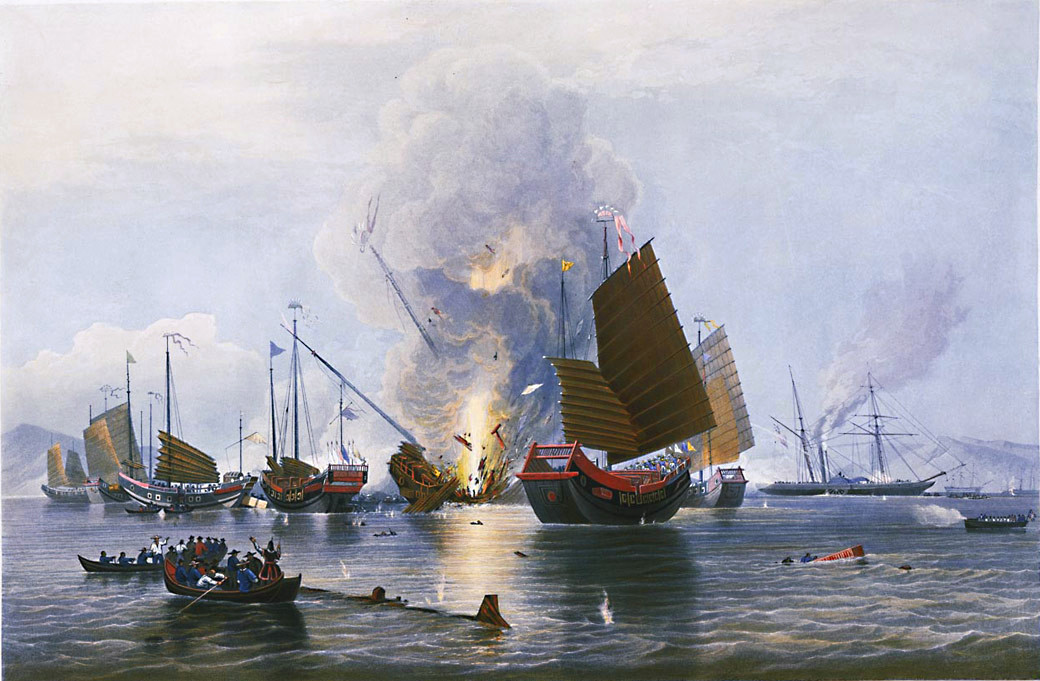In the late 1700’s, England began its love affair with tea. Most of the tea was imported from China. The British were so obsessed with the beverage that the fast “clipper’ ships were invented to get the freshest tea leaves back to the home country. The famous Cutty Sark could transport over one million pounds of tea to England in less than one hundred days. In a mercantile world, the problem was this created a trade imbalance for England. Chinese citizens were not interested in British products. To pay for the imports, England was being drained of gold and silver. What was needed was an export that Chinese had to have. The British government and the powerful East India Company concocted a plan to get the Chinese hooked on opium. There was plenty of opium available from England’s colony of India. By the 1830’s, the trade imbalance was solved as over ten million Chinese became addicted to opium. Over 25% of Chinese men were hooked. The Chinese emperor knew his country had a problem. In 1839, he ordered the ending of the importation by seizing control of the port of Canton. Supplies of opium were destroyed. 1,200 tons of the drug and 70,000 opium pipes went up in smoke (get it?). The British reacted by blockading the port so no imports could come in. The war began when Chinese ships opened fire. This gave the British the excuse to seize several major ports. The Royal Navy, with its’ steam-powered warships, made easy work of the Chinese navy. The Treaty of Nanking humiliated China. It had to open more ports to foreign trade. British civilians were exempted from Chinese laws. China had to pay $21 million for the lost opium and the cost of the war. And Hong Kong was ceded to Great Britain. And the addiction continued.
https://www.historyhit.com/facts-about-the-opium-wars/
– The Greatest War Stories Never Told pp. 84-85
https://www.historyhit.com/facts-about-the-opium-wars/

0 Comments